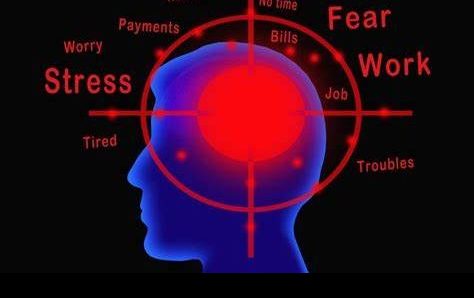Ever feel like your brain is a pinball machine on overdrive? Tilting between worry, sadness, and feeling utterly fried? If so, you’re not alone. Stress, depression, and anxiety are unwelcome guests in the human experience, wreaking havoc on our thoughts, emotions, and daily lives. But fear not, intrepid explorer of your own mind! This article is your roadmap to understanding these mental health foes and emerging victorious.
Decoding the Distress: What’s the Difference Between Stress, Depression, and Anxiety?
Imagine your brain as a finely tuned race car. Stress is like hitting the gas pedal – it revs you up for action. It’s a normal response to challenges, deadlines, or that awkward first date. But when that gas pedal gets stuck on high, and the engine starts to sputter – that’s when stress morphs into something more troublesome.
Unveiling the Undercover Agent: Chronic Stress
Chronic stress is like a persistent low-grade fever. It lingers, draining your energy reserves and making it difficult to focus or relax. Symptoms can include:
- Difficulty sleeping
- Irritability
- Headaches
- Fatigue
- Muscle tension
Can Stress Lead to Depression and Anxiety?
Absolutely! Chronic stress can be the gateway drug to depression and anxiety. Think of it like this: the constant barrage of stress hormones weakens the resilience of your brain circuits, making you more susceptible to these mental health conditions.
The Melancholy Maze: Unveiling Depression
Depression is more than just feeling bummed after a bad day. It’s a persistent feeling of sadness, hopelessness, and a loss of interest in activities you once enjoyed. It can be all-encompassing, like a thick fog that dampens your spirit and motivation. Symptoms of depression can include:
- Loss of appetite or overeating
- Changes in sleep patterns (sleeping too much or too little)
- Feelings of worthlessness or guilt
- Difficulty concentrating
- Suicidal thoughts or plans
The Anxious Abyss: Exploring Anxiety
Anxiety feels like your fight-or-flight response is stuck on permanent high alert. It’s that constant feeling of worry, dread, and physical symptoms like a racing heart, shortness of breath, and muscle tension. There are different types of anxiety disorders, each with its own set of worries and triggers.
Can Anxiety and Depression Occur Together?
Yes, the comorbidity is real! Many people experience both anxiety and depression simultaneously. It’s like a double whammy on your mental well-being.
The Big Picture: Unveiling the Underlying Causes
So, what triggers these mental health monsters? The answer, like most things in life, is complicated. Here are some potential culprits:
- Biological factors: Brain chemistry and genetics can play a role.
- Life events: Stressful events like job loss, relationship issues, or financial problems can be triggers.
- Medical conditions: Certain medical conditions can increase the risk of depression and anxiety.
- Substance abuse: Alcohol and drugs can worsen these conditions.
Nature vs. Nurture: The Complex Dance
It’s a combination of both! Our genes load the gun, but our environment pulls the trigger. If you have a genetic predisposition for mental health issues, experiencing stressful life events can increase your risk.
Breaking Free from the Mental Maze: Effective Strategies for Managing Stress, Depression, and Anxiety
You’re not doomed to be a prisoner in your own mind! Here’s your battle plan to fight back:
Championing Self-Care: Your Daily Dose of Awesome
Self-care isn’t selfish – it’s essential! Think of it as putting on your own oxygen mask first before helping others. Here are some self-care strategies:
| Self-Care Strategies | Benefits |
|---|---|
| Regular exercise: Get your blood pumping and endorphins flowing. Aim for at least 30 minutes of moderate-intensity exercise most days of the week. | Boosts mood, reduces stress, improves sleep |
| Healthy eating: Nourish your body and mind with a balanced diet rich in fruits, vegetables, and whole grains. | Provides essential nutrients for brain function, promotes better sleep |
| Quality sleep: Aim for 7-8 hours of quality sleep each night. | Improves concentration, mood regulation, and overall health |
| Relaxation techniques: Practice deep breathing, yoga, or meditation to calm your mind and body. | Reduces stress, improves sleep quality |





